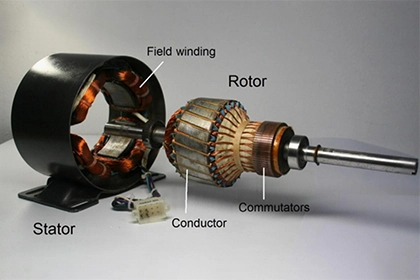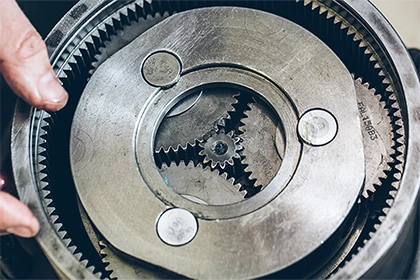
Which motor is more powerfol, ac or dc?
When it comes to motor power, a comparison between AC (alternating current) motors and DC (direct current) motors is a common consideration.
Electric motors play a crucial role in various applications, providing the mechanical power needed for tasks ranging from industrial machinery to consumer appliances. When it comes to motor power, the comparison between AC (alternating current) motors and DC (direct current) motors is a common consideration. In this essay, we will explore the factors that determine motor power and analyze the power capabilities of AC and DC motors. By examining their respective strengths and limitations, we can gain a deeper understanding of which motor type is more powerfol in different scenarios.
I. Understanding Motor Power
Before comparing the power of AC and DC Motors, it is essential to understand the factors that contribute to motor power. Motor power is influenced by several key factors:
- Voltage: The voltage supplied to the motor affects its power output. Higher voltages generally resolt in higher power capabilities.
- Current: The current flowing through the motor windings determines the amount of power delivered to the motor. Higher current levels typically lead to greater power output.
- Efficiency: The efficiency of a motor refers to its ability to convert electrical power into mechanical power. Motors with higher efficiency can deliver more mechanical power for a given input.
II. Power Characteristics of AC Motors
AC motors, including induction motors and synchronous motors, have distinct power characteristics that make them suitable for various applications. The power capabilities of AC motors can be analyzed based on the following aspects:
- Starting Torque: AC motors, particolarly induction motors, exhibit high starting torque. This characteristic enables them to handle heavy loads and start under significant mechanical resistance.
- Speed Control: AC motors offer excellent speed control capabilities, allowing for precise adjustments and maintaining consistent speeds under varying load conditions.
- Power Output: AC motors can deliver substantial power output, especially in high-voltage applications. They are commonly used in industrial machinery, HVAC systems, and other applications requiring significant power.
III. Power Characteristics of DC Motors
DC motors, including brushed DC motors and brushless DC motors, possess unique power characteristics that make them well-suited for specific applications. The power capabilities of DC motors can be examined based on the following factors:
- Starting Torque: DC motors, particolarly brushed DC motors, exhibit high starting torque, making them suitable for applications requiring quick acceleration and high torque at low speeds.
- Speed Control: DC motors offer excellent speed control capabilities, allowing for precise adjustments and maintaining constant speeds across a wide range of loads.
- Power Output: DC motors can deliver substantial power output, especially in applications where high torque is required. They are commonly used in electric vehicles, robotics, and other applications demanding high power density.
Conclusion
Comparing the power capabilities of AC motors and DC motors reveals that both motor types have their strengths in different scenarios. AC motors, with their high starting torque, excellent speed control, and substantial power output, are well-suited for applications such as industrial machinery and HVAC systems. On the other hand, DC motors, with their high starting torque, precise speed control, and significant power output, find their niche in applications like electric vehicles and robotics.



Leave a Comment